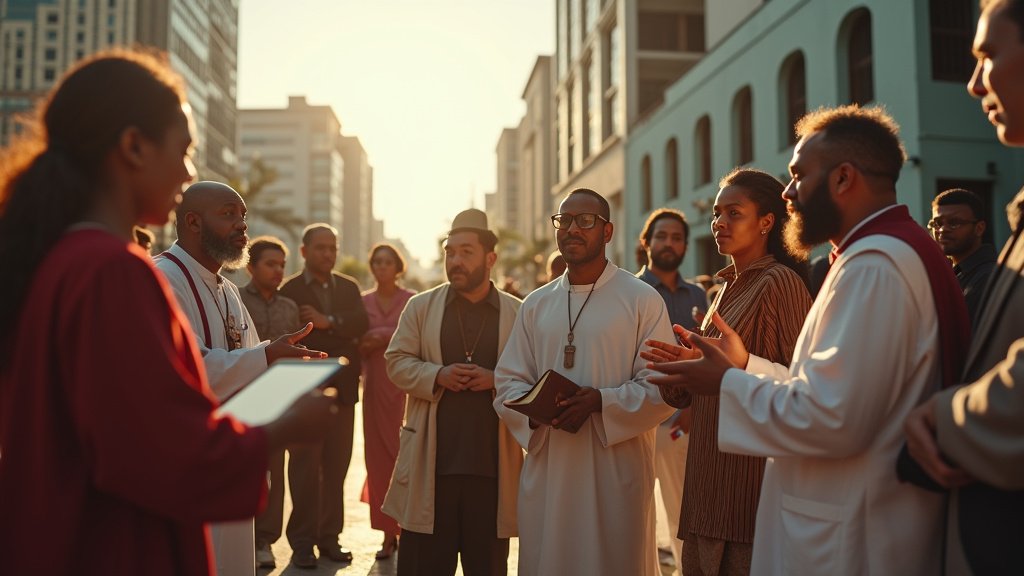MIAMI, FL – A recent announcement by the Internal Revenue Service (IRS) is sending ripples through the religious community, particularly in Miami, Florida. The IRS has declared that churches now have the green light to endorse political candidates, a move that is already prompting extensive discussions and assessments among faith leaders throughout the city. This significant policy shift has the potential to fundamentally alter the landscape of political engagement, raising complex questions about the interplay of religion, politics, and the role of tax-exempt organizations in public life.
The IRS Decision and Its Implications
The IRS’s decision marks a departure from previous regulations that largely restricted churches from overtly supporting or opposing political candidates. The details of the new guidelines, and how they will be enforced, are still emerging, but the initial interpretation suggests a loosening of restrictions. This change allows religious organizations to participate more directly in political campaigns. It gives them the ability to express preferences for candidates, and perhaps to dedicate resources to political activities, such as get-out-the-vote efforts or the distribution of candidate literature.
The implications of this shift are multifaceted. On one hand, it could be seen as an affirmation of religious freedom, allowing churches to exercise their First Amendment rights and express their views on political matters. For some, this could be viewed as a way to strengthen their voice in society and to advocate for policies they believe are in line with their faith. The prospect of more religious organizations actively supporting or opposing candidates could also lead to increased voter turnout and a more engaged electorate, at least in certain communities. The decision might energize specific demographics.
However, this change is also fraught with potential challenges. One of the most pressing concerns is the separation of church and state. Critics worry that allowing churches to endorse candidates could blur the lines between religious institutions and political entities, potentially leading to undue influence and the erosion of the separation of church and state. Concerns have been raised about the potential for partisan bias and the risk that churches might use their influence to advance specific political agendas. Some have pointed out the importance of maintaining the integrity of houses of worship as sanctuaries of faith, rather than political battlegrounds.
Miami Faith Leaders Weigh In
In Miami, a city known for its vibrant and diverse religious communities, faith leaders are actively grappling with the implications of the IRS decision. They are currently in the process of assessing how this change aligns with their religious values, their commitment to community engagement, and the legal complexities surrounding their tax-exempt status. The discussions are taking place across a wide range of denominations and religious traditions, reflecting the city’s multicultural character.
One of the key areas of deliberation is the question of religious values. Many faith leaders are asking themselves whether endorsing political candidates aligns with their religious teachings and their vision for their congregations. Some may feel compelled to take a stand on certain issues, while others may prefer to remain neutral or to focus on broader social concerns. The decision will vary significantly from church to church. Some religious leaders might feel a strong moral imperative to support or oppose specific candidates, while others might believe that their role is to provide spiritual guidance, not to endorse particular politicians.
Community engagement is another significant factor. Many churches play a vital role in their communities, providing social services, educational programs, and other forms of support. Faith leaders are therefore evaluating how endorsing candidates might affect their relationships with their congregations and the wider community. Will such endorsements strengthen their ties or lead to divisions? How can they maintain their commitment to inclusivity and service while engaging in the political arena?
Finally, Miami faith leaders must also consider the legal and financial implications of the IRS decision. Churches that endorse candidates could face scrutiny from the IRS, potentially jeopardizing their tax-exempt status. This is a critical issue, as many churches rely on their tax-exempt status to support their operations and mission. Navigating the new regulations can be complex and will demand careful consideration of legal counsel.
The Road Ahead
The IRS decision is still relatively new, and its full impact will likely unfold over time. Miami faith leaders are just beginning to navigate this evolving landscape, weighing the potential benefits and risks of engaging more directly in political campaigns. The debate is not just about whether to endorse candidates but also about how to do so effectively and responsibly, while staying true to their religious values and their mission of serving their communities.
This development has the potential to reshape the political landscape. It will be interesting to observe how religious organizations choose to exercise their new freedoms. The decision has spurred a debate that will continue to evolve over the coming months and years. The separation of church and state, the role of religion in politics, and the potential for increased political activism within religious communities are all key considerations as faith leaders across Miami and the nation assess their next steps. The coming election cycles will undoubtedly provide further insight into the practical effects of this policy shift and the ways in which religious organizations choose to engage in the political process. The decisions made in Miami, and across the country, will have a profound impact on the intersection of faith and politics for years to come.





